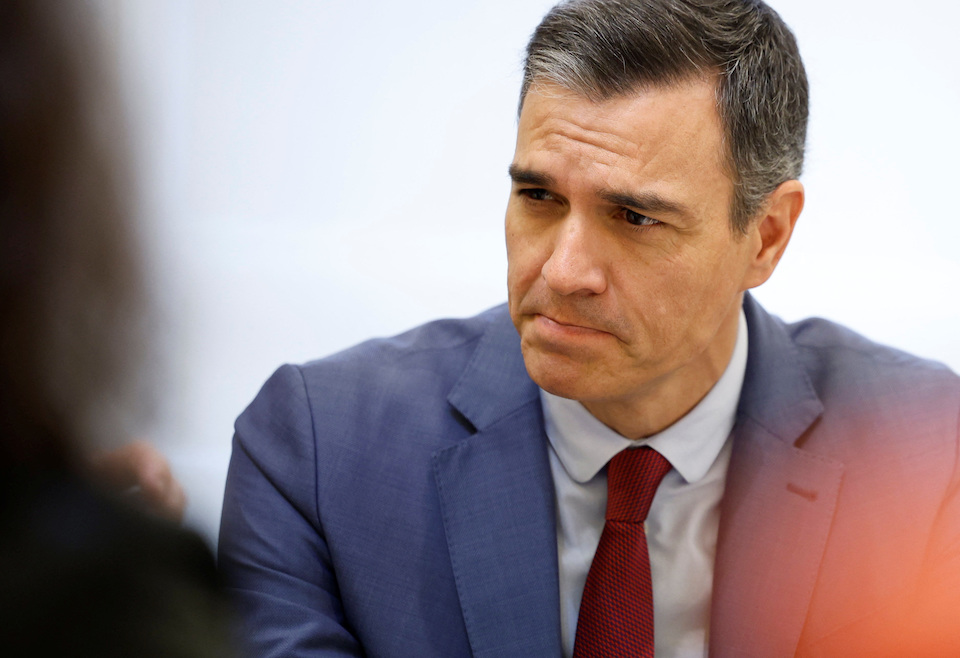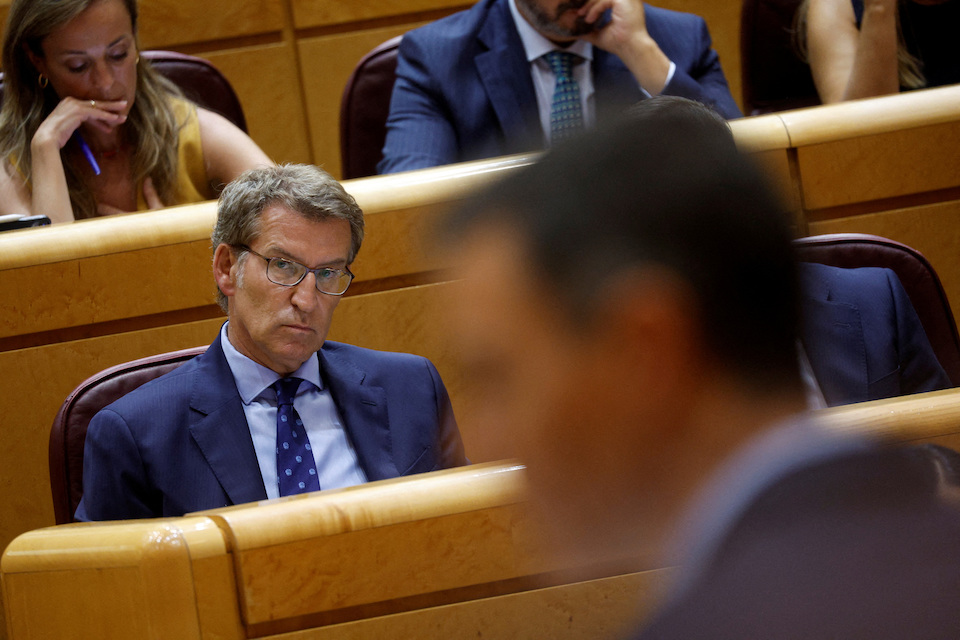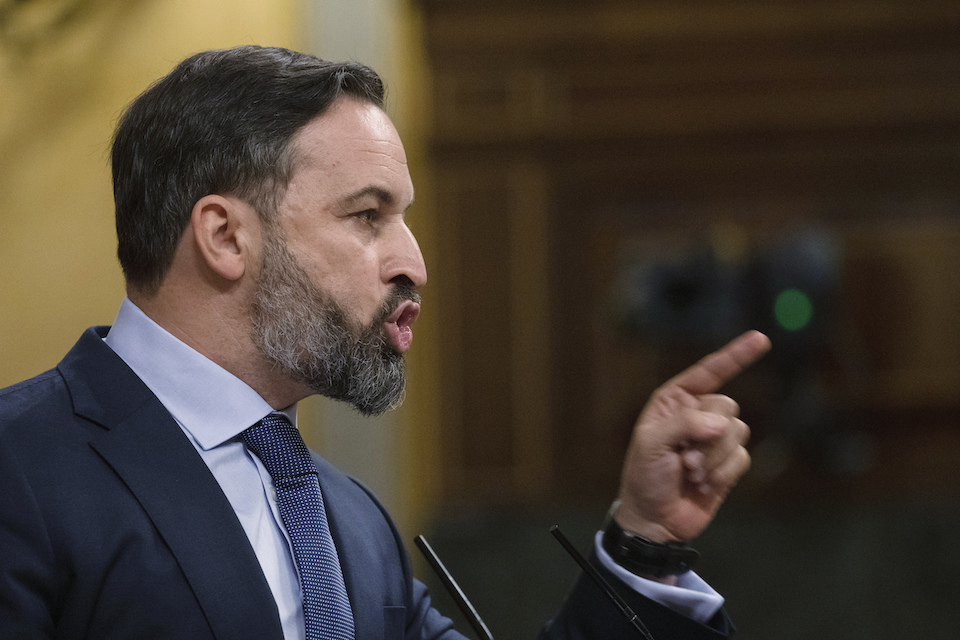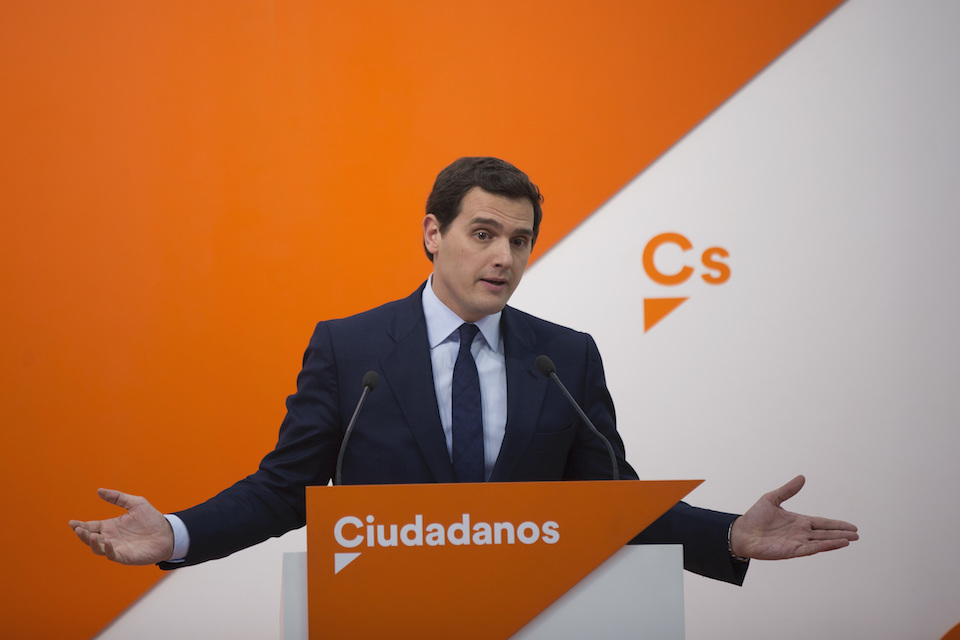
“No one expected … Who would have thought … Polls poured in … A coup …”. Phrases of this type have been repeated more and more often in recent years, not only in Greece, but also outside the rather narrow framework of our political events.
From Spain from Pedro Sanchez to Jimmy Akesson’s Sweden and from Georgia Meloni’s Italy to Rishi Sunak’s Britain, there are many who stand silently before the tide of election results, reassessing their political instincts with existential questions like “how did we not see this happen.”
Governing Socialists (PSOE) Pedro Sanchez suffered heavy losses in the municipal and regional elections held last Sunday in Spainbecause suddenly, about six months before the national elections expected at the end of the year, they found themselves losing control of cities (Seville, Valencia, etc.) and communities (Aragon, La Rioja, Balearic Islands, Valencia, etc. d.). ) .), which are now passing into the hands of the centre-right People’s Party / PP, which, however, will need to join forces in some areas with the – also electorally strengthened – far-right Vox, in order to be able to govern.

Big Winners in Spain’s Election Last Sunday: Center-Right PP from Alberto Nunezwho raised his percentage by almost 9%, but also the extreme right Voice from Santiago Abascalwhich increased its own performance by 3.5%.
On the other hand, the big losers are almost everyone else: the centre-left PSOE from Pedro Sanchezleft Unidas Podemos her Yone Bellarabut also centrists citizens.

“In Madrid and elsewhere, the PP took advantage of the retreat of the centre-right Ciudadanos, which all but disappeared from the electoral map after a disastrous night (p.: last Sunday). The far-left Podemos, on the other hand, also suffered significant losses, including losing a total of ten seats in the Madrid Regional Parliament,” Guy Hedgecoe writes in a response to Politico.

Early morning July 23
Reacting “dramatically” to the “dramatic” election results, as El Pais did on May 28, 51-year-old Pedro Sánchez hastened to put the Iberian country on the path to early elections. scheduled for July 23, with Spanish voters held accountable.
Having been prime minister since the summer of 2018, Sanchez decided to take a risk by pushing back by about five months the country’s normally scheduled elections at the end of 2023. Now, he may be hoping that the forthcoming alliances between the Center Right (PP) and the Far Right (Vox) at the municipal/regional level will reflexively bring many voters back into the PSOE pool.
If local elections are a “dress rehearsal” for national elections, then “beware, because the People’s Party (PP), if it wins, can govern together with the far right (Vox)”: this message They say this is what Sanchez wants send to voters, following a strategy similar to that adopted by Antonio Costa last year in Portugal.
Sanchez according to Costa’s recipe?
On the eve of the 2022 elections in Portugal, the leader of the Socialist Party (PS) Antonio Costa, warned voters that if they voted for the centre-right (SDP), they would simultaneously open the door to power for more radical voices (such as the Chega faction, for example), shaping trends on the right-wing political spectrum. . Costa finally won, indeed by a margin, on the 2022 ballot, securing independence.
However, it is by no means certain that Sánchez and the PSOE could follow a similar course that has ruled Spain in recent years, not on their own, but with the support of other political forces such as Unidas Podemos since 2020.
Spain, the fourth largest economy in the European Union, is currently moving towards early elections on July 23, however the country’s party landscape has changed significantly from the recent past, changing not only the right but also the left. political spectrum.
From rise to fall
The right-wing Ciudadanos announced today that they will not even take part in the July parliamentary elections, while the left-wing Podemos, on the other hand, are now a shadow of themselves.
At the peak of the elections, between 2016 and 2019, these parties together accounted for almost 35% (with 21.2% in 2016 being Podemos’ best result in national elections, and 15.9% in 2019, respectively, the best result for Ciudadanos). Now, a few years later, Ciudadanos are dropping out of the race, and Podemos is no longer fighting for victory, but for survival.
The ending may be similar, but the path to “hell” was quite different for the two factions.
Ciudadanos was born in Catalonia in 2006, carrying a political message not of secession from Madrid, but of association with it. From 2014, they will begin to “compete” at the national level, outside the Catalan Autonomous Community. However, it was their position during the Catalan crisis of 2017-2018 that made them famous internationally. At the time when Carles Puigdemont advocated secession, the Ciudadanos were moving in the exact opposite direction. As a new party, they did not have scandals to apologize for, like the Spanish centre-right, bribery scandals, such as the scandal involving the former party treasurer of the PP, Luis Bartenas, which led to the withdrawal in 2018. Mariano He steps down as prime minister after a vote of no confidence.
However, along the way, since the 2019 national elections, the course of Ciudadanos has gradually changed. Many expected the faction to enter a coalition government with Sanchez’s PSOE in 2019, but then-40-year-old Ciudadanos leader Albert Rivera had other plans. He preferred to keep the party in opposition, was highly critical of Sánchez from the right, seemed willing to negotiate even with the far right Vox, all with the aim of putting himself forward as the new leader of the Spanish right in general. His actions, however, provoked a reaction from some leaders, resulting in resignations. Within a few months, from April 2019 to November of that year, Ciudadanos Rivera’s share fell from 15.9% (April elections) to 6.8% (November elections) and lost 47 seats, falling from 57 to 10 before resigning Rivera himself that same year, and by all accounts it was the beginning of the end, an end that is now sealed by today’s announcement that the party will not run in the next national elections.

However, the course of Podemos was different, since in 2020 they decided to become a junior partner in the government of Pedro Sánchez within the PSOE and… they paid for it.
Podemos was born in 2014 from the Spanish Indignados movement led by Pablo Iglesias. In 2020 the government came into government, in 2021 Iglesias resigned (after the party’s disappointing election results in Madrid), and it has continued to fall ever since.

As for the Spanish political scene, it now seems to be returning to the “factory settings” of the bipolarity of PP and PSOE, two poles now shown to come together in polls of more than 55%: about 32% of the centre-right. People’s Party and 23% of socialists.
In third place, according to public opinion polls, is the extreme right. Voice with about 15% and in fourth place is the newly formed coalition of the left, called Sumarunder the leadership of the current Minister of Labour, Yolanda Diatfrom which Podemos has so far been excluded…
Source: Kathimerini
Anna White is a journalist at 247 News Reel, where she writes on world news and current events. She is known for her insightful analysis and compelling storytelling. Anna’s articles have been widely read and shared, earning her a reputation as a talented and respected journalist. She delivers in-depth and accurate understanding of the world’s most pressing issues.